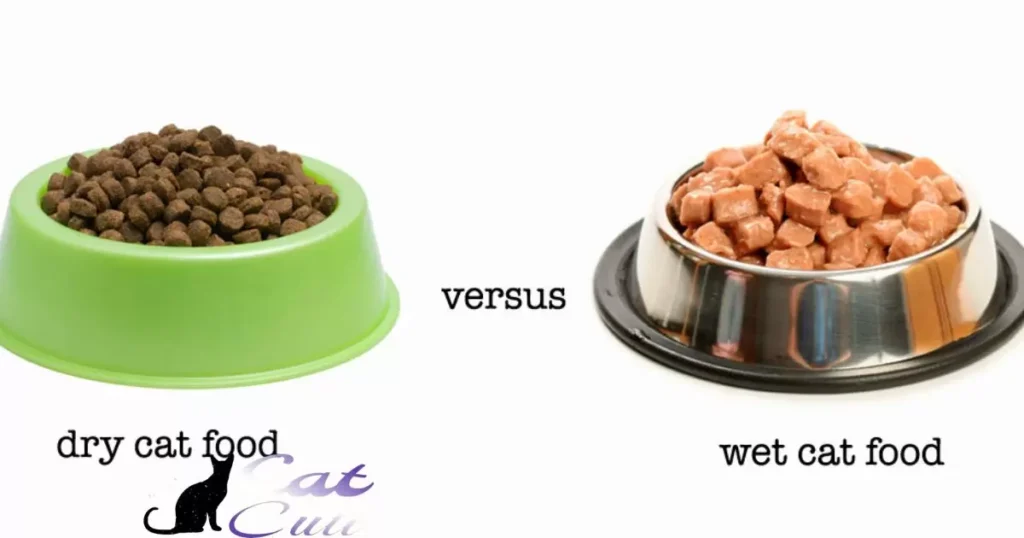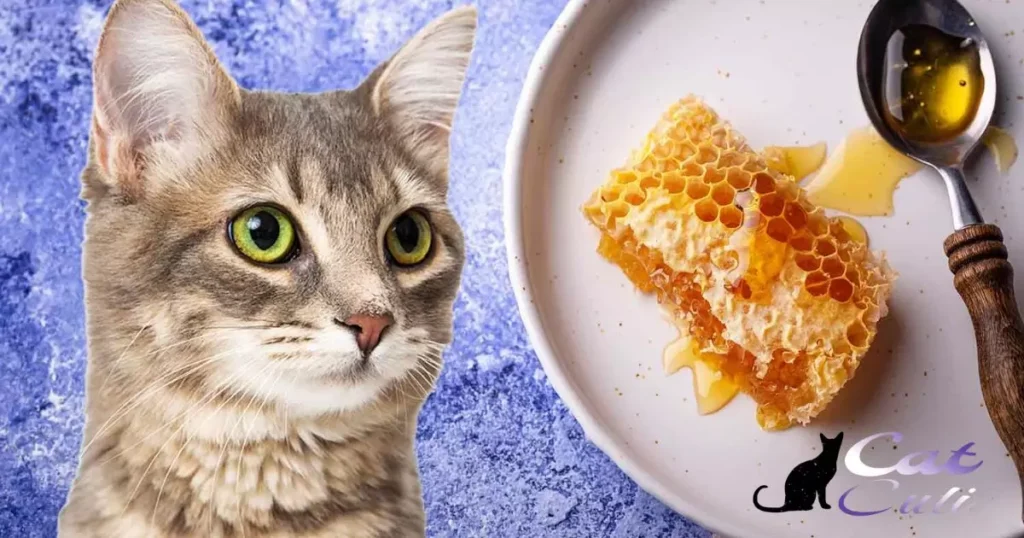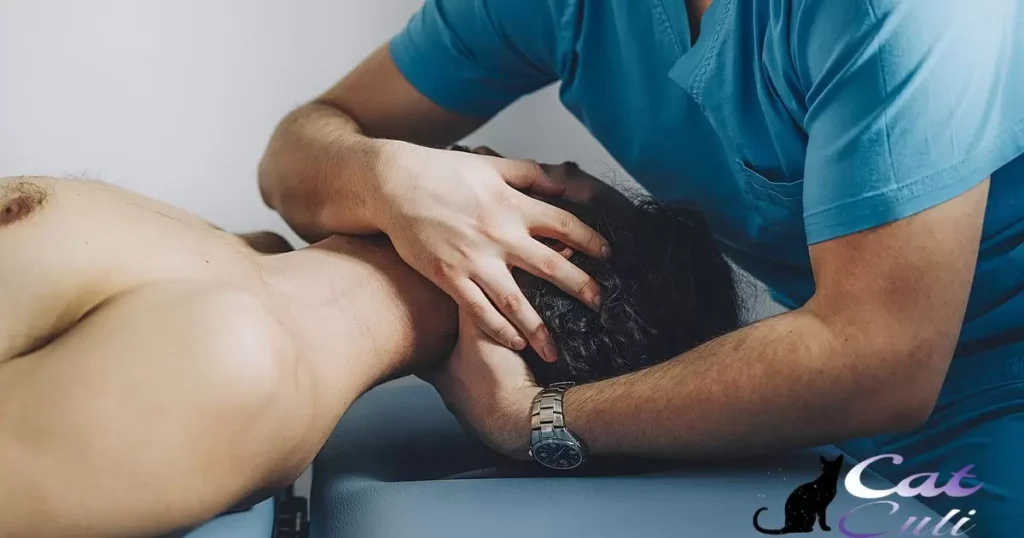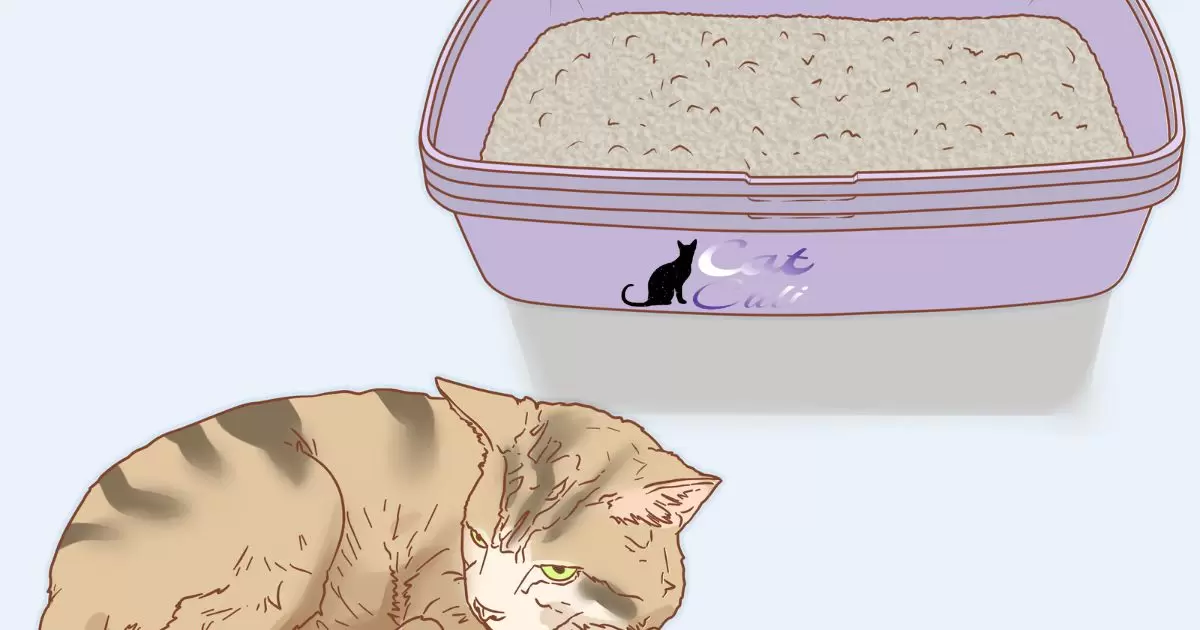Canned cat food can cause diarrhoea in some cats due to changes in diet. This might occur if the cat’s digestive system is sensitive or reacts to certain ingredients in the food. Switching abruptly to a new brand or type of canned food could also lead to digestive issues. It’s best to introduce new foods gradually to prevent diarrhoea in cats.
Are you wondering, Does canned cat food cause diarrhea? If you’ve noticed your feline friend experiencing tummy troubles, this question might be on your mind. Understanding the link between a cat’s diet and digestive issues can shed light on potential causes for discomfort.
It’s a common concern among cat owners. While not all cats experience this issue, some may have sensitive stomachs reacting to certain ingredients. Understanding your cat’s dietary needs and introducing new foods gradually can help prevent digestive problems.
Symptoms Of Diarrhea In Cats
Diarrhea in cats shows through loose stools, often with increased frequency. You might notice accidents outside the litter box or a sudden change in bowel movements. Cats with diarrhea can also exhibit signs of discomfort, like abdominal pain or lethargy. These symptoms indicate a potential issue that needs attention from a vet.
Keeping an eye out for changes in your cat’s litter box habits is crucial. Loose stools, vomiting, or reduced appetite are common signs of diarrhea. If you spot these symptoms persisting for more than a day or if your cat seems unwell, seeking veterinary care promptly is essential to ensure your cat’s health.
Is Wet Food Bad For Cats?
Wet food isn’t necessarily bad for cats. It can provide hydration and contain high protein levels beneficial for their health. Feeding exclusively wet food might lead to dental issues, as it’s less abrasive on teeth compared to dry kibble. It’s important to balance a cat’s diet with both wet and dry food for their overall well-being.
Cats can benefit from the moisture content in wet food, aiding in urinary tract health. Yet, solely relying on wet food might not give their teeth the needed workout, potentially leading to dental problems. A mix of wet and dry food could be the best way to ensure a cat’s nutritional needs are met while safeguarding their dental hygiene.
Does Wet Cat Food Cause Diarrhea?
Wet cat food might cause diarrhea in some cats due to sudden diet changes. Cats with sensitive stomachs might react poorly to new ingredients. Gradually introducing wet food can help avoid digestive issues in your feline friend. Monitoring your cat’s response to different foods can aid in preventing diarrhea.
Understanding your cat’s reactions to wet food is essential. Sudden shifts in diet could upset their stomachs, leading to digestive problems. Introduce new food slowly to observe how your cat responds, ensuring a healthier, more comfortable dining experience for your pet.
What Is Wet Cat Food?

Wet cat food is a moist, canned meal made primarily from meat, fish, or poultry. It’s rich in water content, providing hydration for cats who might not drink enough water on their own. Cats often find wet food more palatable due to its strong aroma and softer texture, making it an enticing option for picky eaters.
Cats Poop Less On Wet Food is a mnemonic phrase that humorously highlights a potential benefit of wet cat food. This type of cat food offers various flavors and textures, catering to different feline tastes. It’s easy to digest and can be beneficial for cats with dental issues or those needing extra moisture in their diet.
What Causes Diarrhea In Cats?
Diarrhea in cats stems from various factors. Sudden diet changes, like switching food brands abruptly, often upset their stomachs. Also, ingesting spoiled food or exploring unfamiliar items can trigger digestive issues. Stress, infections, or underlying health conditions might contribute to diarrhea in cats too.
Sometimes, cats get diarrhea due to dietary intolerances or allergies to specific ingredients in their food. Their delicate digestive systems react, causing loose stools. Ensuring a balanced diet and monitoring any changes in behaviour or diet can help pinpoint the cause and manage diarrhea in cats effectively.
What Can I Do To Help The Veterinarian Diagnose My Cat?
To assist the veterinarian in diagnosing your cat, provide a detailed history of any changes in behaviour, eating habits, or health issues your cat has experienced. Observing and noting specific symptoms, such as vomiting, lethargy, or changes in litter box habits, can offer valuable clues for the vet.
Bringing along any relevant documents, like previous medical records or a list of medications your cat is taking, can aid the vet in understanding your cat’s health history. Being present during the examination allows you to answer any questions the vet may have and ensures you’re involved in the diagnostic process for your cat’s well-being.
When Should You See The Veterinarian?
You should see the veterinarian when your pet shows unusual behaviour or health concerns. If your furry friend suddenly stops eating, becomes lethargic, or displays signs of distress, it’s time for a vet visit.
Regular check-ups are also crucial to keep your pet healthy and catch any issues early on. Don’t hesitate to schedule a visit whenever you’re uncertain about your pet’s well-being.Seeking the vet’s guidance becomes essential for preventive care.
Vaccinations, dental check-ups, and parasite control are routine aspects of your pet’s health that a veterinarian can assist with. By consulting with the vet regularly, you ensure your pet’s overall wellness and address any potential health problems promptly.
How Do You Diagnose The Cause Of Diarrhea?
Diagnosing the cause of diarrhea involves a few steps. Firstly, the doctor will ask about your symptoms and medical history. They’ll perform a physical exam to check for signs of dehydration or other issues.
Then, they might request stool samples to analyze for infections, parasites, or signs of inflammation. These tests help pinpoint the underlying cause, guiding the appropriate treatment for your condition.
It’s essential to communicate openly with your healthcare provider, sharing any relevant details about your symptoms. By actively participating in the diagnostic process and following their recommendations for tests or examinations, you can help identify the cause of your diarrhea accurately.
How Can I Firm Up My Cat’s Stool?
Ways to firm up your cat’s stool include adjusting their diet. Try incorporating more fibre by adding small amounts of pumpkin or a fibre supplement to their meals. Ensuring they drink enough water is crucial as dehydration can lead to loose stools.
Consider discussing any persistent issues with your vet to rule out underlying health concerns.Another simple method is to switch your cat to a different type of cat food. Opt for a diet with easily digestible proteins and limited fillers.
Slowly transition between foods to prevent digestive upset. Regular exercise can also aid in improving your cat’s overall digestive health.
What Cat Food Is Best For Cats With Diarrhea?

When cats have diarrhea, choosing the right food is crucial. Opt for easily digestible options like plain cooked chicken or rice, as they can soothe sensitive stomachs. Low-fat and high-fiber diets can also help regulate digestion for cats dealing with diarrhea.
Consulting a vet for specific recommendations tailored to your cat’s needs is always a wise choice. Finding the best cat food for diarrhea involves selecting easily digestible options, such as plain cooked chicken or rice.
These choices can soothe sensitive stomachs and aid in regulating digestion due to their low-fat and high-fiber content. For personalized advice, it’s best to consult a vet who can provide recommendations based on your cat’s individual needs
Wet Food Vs. Dry Food
| Aspect | Wet Food | Dry Food |
| Texture | Moist and soft | Crunchy and dry |
| Hydration | Higher moisture content | Lower moisture content |
| Palatability | Often more appealing to cats | Varied preference among cats |
| Shelf Life | Shorter shelf life once opened | Longer shelf life |
| Nutrient Density | Contains more water, less calories | More calorie-dense |
| Digestibility | Easily digestible | Takes longer to digest |
| Storage | Requires refrigeration once open | Can be stored for longer periods |
| Variety | Limited flavours and textures | Wider variety of options available |
What Do I Feed A Kitten With Diarrhea
If your kitten has diarrhea, opt for easily digestible foods like boiled chicken or rice. These bland foods can soothe their upset stomach and provide necessary nutrients. Consider a veterinarian’s advice for specific diets or commercial cat foods tailored for sensitive stomachs.
Ensure your kitten stays hydrated by offering plenty of fresh water. Small, frequent meals throughout the day can also help regulate their digestive system. Remember, seeking veterinary guidance is crucial to determine the best diet for your kitten’s recovery from diarrhea.
How To Stop Diarrhea In Kittens
To halt diarrhea in kittens, start by withholding food for a brief period, allowing their stomachs to settle. Gradually reintroduce a bland diet, like boiled chicken or rice, in small portions to ease their digestion. Ensure they have access to clean water to prevent dehydration, a common risk with diarrhea in kittens.
Consulting a vet is crucial to rule out any underlying health issues causing the diarrhea. The vet may suggest specific treatments, such as probiotics or medication, to alleviate symptoms and restore your kitten’s health. Remember, swift action and proper care can swiftly resolve diarrhea in kittens, ensuring their well-being.
Is It Normal For Kittens To Have Diarrhea
Kittens experiencing diarrhea isn’t uncommon. It can result from dietary changes or infections. Monitoring their diet closely and ensuring they’re hydrated is crucial. A vet check is wise to rule out any underlying health concerns causing the diarrhea.
Healthy kittens might face temporary digestive issues due to new foods or stress. Maintaining a consistent feeding schedule and providing a balanced diet helps regulate their digestion. However, persistent or severe diarrhea warrants prompt veterinary attention to safeguard the kitten’s health and well-being.
What Causes Diarrhea In Kittens
Diarrhea in kittens often stems from sudden dietary changes or infections. Switching their food abruptly or feeding them something new might upset their delicate stomachs. Infections, like parasites or viruses, can also trigger diarrhea in these young cats.
A kitten’s sensitive digestive system makes them prone to diarrhea. Their immature systems struggle to handle new foods or infections, leading to tummy troubles. Monitoring their diet and ensuring they receive proper veterinary care can help prevent and address diarrhea in these tiny felines.
When To Be Concerned By A Bout Of Feline Diarrhea
If your cat has diarrhea, keep an eye on how long it lasts and its severity. If it’s mild and resolves in a day or two, it might not be a big concern. Yet, if it persists for more than a couple of days or is accompanied by other symptoms like lethargy or dehydration, it’s time to consult the vet.
Quick action can prevent any underlying issues from worsening.Changes in diet, stress, or infections can trigger feline diarrhea. Pay attention to recent alterations in food or routine.
Keep an eye out for any potential access to harmful substances or a history of sensitivities your cat might have. Understanding the potential causes aids in both prevention and treatment.
Is Treatment Necessary?

Treatment becomes essential depending on the severity of the condition. If symptoms persist or worsen, seeking medical advice is crucial. A timely intervention can prevent complications and ensure a quicker recovery.
Determining the necessity of treatment hinges upon various factors. Evaluating the symptoms, consulting a healthcare professional, and considering the individual’s overall health aid in making an informed decision.
What Are The Treatment Options?
- Medications: Including antibiotics, pain relievers, or specific drugs targeting the condition.
- Therapies: Physical therapy, occupational therapy, or counseling sessions based on the nature of the ailment.
- Surgical intervention: In cases where surgical procedures offer the best solution or management.
- Lifestyle modifications: Changes in diet, exercise routines, or daily habits to aid recovery or manage symptoms.
- Alternative treatments: Such as acupuncture, herbal remedies, or complementary therapies, depending on individual preferences and condition suitability.
Common Causes Of Diarrhea In Cats
Diarrhea in cats often stems from various causes. Sudden changes in diet or consuming spoiled food might upset their stomachs. Infections, parasites, or underlying health issues can trigger diarrhea too.
Monitoring their diet and promptly addressing any changes in behaviour or stool consistency can help identify and manage the cause of diarrhea in cats.Stress or anxiety may play a role in feline digestive issues.
Environmental changes, like moving houses or introducing new pets, can lead to diarrhea. Ensuring a calm and familiar environment for your cat and minimizing abrupt changes can contribute to their overall digestive health.
Can Too Much Dry Cat Food Cause Diarrhea
Feeding excessive dry cat food can trigger diarrhea in cats. When cats consume too much dry food, it alters their digestive balance, leading to loose stools. A sudden increase in dry food intake may overwhelm their system, causing digestive issues like diarrhea.
To avoid this, monitor your cat’s food portions and ensure a balanced diet. Gradually introduce new dry food and maintain a consistent feeding schedule to prevent digestive upsets. Keep an eye on your cat’s health and adjust their diet as needed to maintain a healthy digestive system.
How Long Will My Cat Have Diarrhea After Changing Food
Changing your cat’s food can lead to diarrhea, but the duration varies. This adjustment period lasts a few days to a couple of weeks. Cats may experience loose stools as their digestive system adapts to the new food.
Ensuring a gradual transition between the old and new food helps minimize diarrhea. Slowly mix the new food into the old, increasing the ratio over a week or two. Monitoring your cat’s condition during this time is crucial for their comfort and health.
Does Wet Food Cause Diarrhea In Dogs
Wet food might cause diarrhea in dogs due to abrupt dietary changes. Some canines have sensitive stomachs, reacting adversely to certain ingredients found in wet food. Gradually introducing new food types can help prevent digestive issues in your furry companion.
Understanding your dog’s dietary needs is crucial in ensuring their digestive health.Changing wet food abruptly might upset a dog’s stomach, leading to diarrhea. Dogs with sensitive digestive systems can react negatively to certain ingredients present in wet food.
To avoid this, slowly transitioning your dog to new food types can minimize the chances of digestive upset, keeping your pet healthy and comfortable.
Does Wet Cat Food Cause Soft Stool
Wet cat food might lead to soft stools in some cats. Certain ingredients or sudden changes in diet can trigger this reaction. Gradually introducing wet food and monitoring your cat’s response can help determine if it causes soft stool.
It’s essential to observe your cat’s digestive health and consider consulting a vet if issues persist.Soft stools can occur due to wet cat food. Cats may react to specific ingredients or rapid changes in their diet, causing this issue.
To understand the impact of wet food on your cat’s stool, slowly introduce it and watch for any changes. Regular monitoring and seeking veterinary advice can assist in managing your cat’s digestive health effectively.
FAQ’s
Can a cat get diarrhea from wet food?
Yes, some cats may react to wet food, causing diarrhea due to sensitive stomachs or ingredient intolerance.
Should I stop eating food if my cat has diarrhea?
Temporarily withhold food for 12-24 hours, then gradually reintroduce bland food. If diarrhea persists, consult a vet.
What are the disadvantages of canned cat food?
Canned food can spoil, be pricey, and contain more additives than dry food, but it’s moisture-rich and palatable.
Can wet cat food make a cat sick?
In some cases, yes. Cats might react to certain ingredients or changes in diet, causing sickness or digestive issues.
Conclusion
In conclusion, the question: Does canned cat food cause diarrhea? isn’t universally definitive. While it can lead to digestive issues in some cats due to sensitive stomachs or ingredient intolerances, not all felines experience this. The key lies in understanding your cat’s individual needs, introducing new foods gradually, and observing their reactions closely.
Sudden dietary changes can upset a cat’s stomach, leading to diarrhea. It’s crucial to monitor their response when introducing canned food and consult a vet if persistent digestive issues arise. Balancing your cat’s diet and being mindful of their specific tolerances can help maintain their digestive health and overall well-being.








